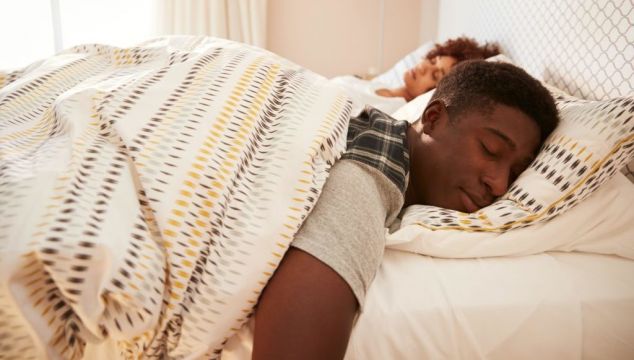As if we needed any more convincing that sleep is good for us, now a new study suggests sub-optimal sleep is linked to a heightened risk of heart disease and stroke.
Researchers found ‘good sleepers’ are less likely to suffer strokes – but they also discovered nine in 10 people do not usually get a good night’s snooze.
“The low prevalence of good sleepers was expected given our busy, 24/7 lives,” said study author Dr Aboubakari Nambiema of the French National Institute of Health and Medical Research in Paris.
“The importance of sleep quality and quantity for heart health should be taught early in life when healthy behaviours become established.”
Cardiovascular disease is the leading cause of death worldwide, so researchers want to encourage greater awareness around the importance of good sleep for maintaining a healthy heart.
In summer, positive sleeping habits can often slip – maybe we’re staying out later as the sun is still up, or perhaps we’re drinking more than we normally would. Hot, stuffy bedrooms can hinder sleep too. However, the new school year is nearly upon us, meaning autumn is just around the corner.
This is the perfect time to make some new healthy habits – and striving to sleep better is a great start…
Have a digital detox before bed

Avoiding screens before bed is easier said than done, but it really could be the ticket to better sleep.
“Using your phone before bed isn’t good for our brains,” says Hector Hughes, co-founder of Unplugged digital detox cabins (unplugged.rest). “By removing your phone from arms’ reach morning and night, your brain will get deeper and longer sleep.”
Professor Jason Ellis, sleep specialist advisor to Puressentiel (uk.puressentiel.com) agrees, explaining: “The blue light emitted by your mobile phone screen minimises the production of melatonin, the hormone that controls your sleep-wake cycle (circadian rhythm). This makes it even more difficult to fall asleep and wake up the next day.” He recommends ditching the screens at least one hour before bedtime.
So, how can you actually enforce a digital detox before bed? “Leave your phone out of the bedroom at night to avoid the risk of doomscrolling or checking your emails before you sleep. Instead, read a book or listen to a podcast,” Hughes advises. “I also recommend investing in a traditional alarm clock to wake you up in the morning, rather than your phone.”
Get active

“Being physically active improves the duration and quality of sleep,” says Ellis, who recommends walking or running “for at least 30 minutes daily” if you can – although any form of physical activity is better than none.
And however you decide to exercise, you might want to time it carefully. “Having a run just before bedtime may keep you awake for longer – this is the case for some, but not all people,” says Ellis. So it might be better to “fit in your exercise earlier in the day”.
Soak up more nature
“Being in nature is great for our mind and body. It improves our mood, boosts creativity and reduces stress and anxiety,” says Hughes.
For many of us, stress can be a huge barrier to nodding off. So particularly if you live in a city, why not try make a bit more effort to get out in nature? This could be something as simple as going for a walk through the park to see the changing leaves, or taking a train out of town to breathe in the country air for an afternoon.
You could even combine this one with being more active, and taking your runs or walks outside to double-down on the rewards.
Look to sleep-inducing plants
Ellis is a big believer in using plant power to help you sleep. He recommends essential oils like lavender, which he notes “is used for its relaxant effects, causing drowsiness and calmness”.
He continues: “Try other sleep-boosting plants like marjoram, part of the mint family, which contains several compounds that can aid sleep”, as well as sandalwood, which is “rich in alpha- and beta-santalol compounds, which have recognised sedative effects”.







